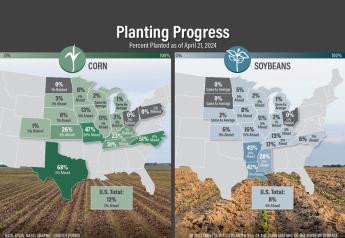Ag, Food Industry Letter Urges Action by Trump on EU Geographical Indications Lists

In a letter sent on Oct. 3 to President Donald Trump, U.S. food industry groups representing farmers and food manufacturers across several sectors urged the United States to immediately impress upon Japan, Mexico and the Mercosur nations that the lists of geographical indications (GIs) they are considering for approval with the European Union (EU) – or will soon be considering – must not include common food and beverage terms such as “parmesan,” “vintage” and “bologna.”
In its trade discussions with Japan and Mexico, the EU is currently pushing approval for lists of geographical indications (GIs) that include many common food names in an effort to monopolize those terms and block market access for various foods, wines and other beverages, the groups note. Japan and Mexico are closing their comment periods on the lists within the next few days, after which they are expected to finalize their negotiations with the EU. The Mercosur nations are Argentina, Brazil, Paraguay and Uruguay.
“On behalf of American farmers and food manufacturers across this country, we ask for your direct attention to an issue that could have a significant negative impact on U.S. market access with two major trade partners: Mexico and Japan,” the letter states. “If the U.S. government firmly expresses its concerns now to Mexico and Japan regarding the importance of safeguarding common names and terms for all to use, both nations might be more inclined to take the right and just steps in these discussions. For the same reason, we strongly encourage firm and clear communications on these points with the Mercosur bloc of countries, the U.S. trading partner region most likely to next initiate a similar process to the ones currently underway in Mexico and Japan in light of ongoing EU-Mercosur FTA negotiations.”
The letter is signed by the American Farm Bureau Federation, Brewers Association, Consortium for Common Food Names, Grocery Manufacturers Association, International Dairy Foods Association, National Council of Farmer Cooperatives, National Milk Producers Federation, North American Meat Institute, United Fresh, U.S. Dairy Export Council, USA Rice and Wine Institute.
The Office of the U.S. Trade Representative has recognized the severity of EU abuses of GI policies, noting in this year’s intellectual property report that “the EU GI agenda remains highly concerning, especially because of the significant extent to which it undermines the scope of trademarks and other IP [intellectual property] rights held by U.S. producers, and imposes barriers on market access for American-made goods and services that rely on the use of common names, such as parmesan or feta.”
Moreover, it is an agenda that continues to expand and is likely to threaten even more products, such as plant varieties, moving forward, as is evidenced by the EU’s market-share grab of deeming long-standing and widely used grape varieties such as “prosecco” to now be GIs reserved exclusively for Italian use.
“Many U.S. companies – and the farmers who provide them with raw goods – will be harmed if Japan and Mexico fully accept the EU lists as is without pushing back and objecting to the inclusion of common terms,” the industry letter states. “We hope the United States will make its voice heard with Mexico and Japan, and in turn with Mercosur countries, clearly stating that we expect them to respect current trade agreements, including our market access rights under those agreements, and that it is in their best interests to safeguard common terms for all producers.”
Jaime Castaneda, executive director of the Consortium for Common Food Names, which has been coordinating U.S. industry filings on the GI lists in Japan and Mexico, stated: “The EU’s predatory strategy of using its FTA talks to hamper market access for its competitors, including many small- and medium-sized U.S. companies, must not be tolerated. As Japan and Mexico prepare to make their final decisions on lengthy EU GI lists that would impair the use of common names, we call on the administration to send a firm message at the highest levels that we expect our trading partners to abide by their existing trade commitments to us and preserve market competition in these common product categories.”







